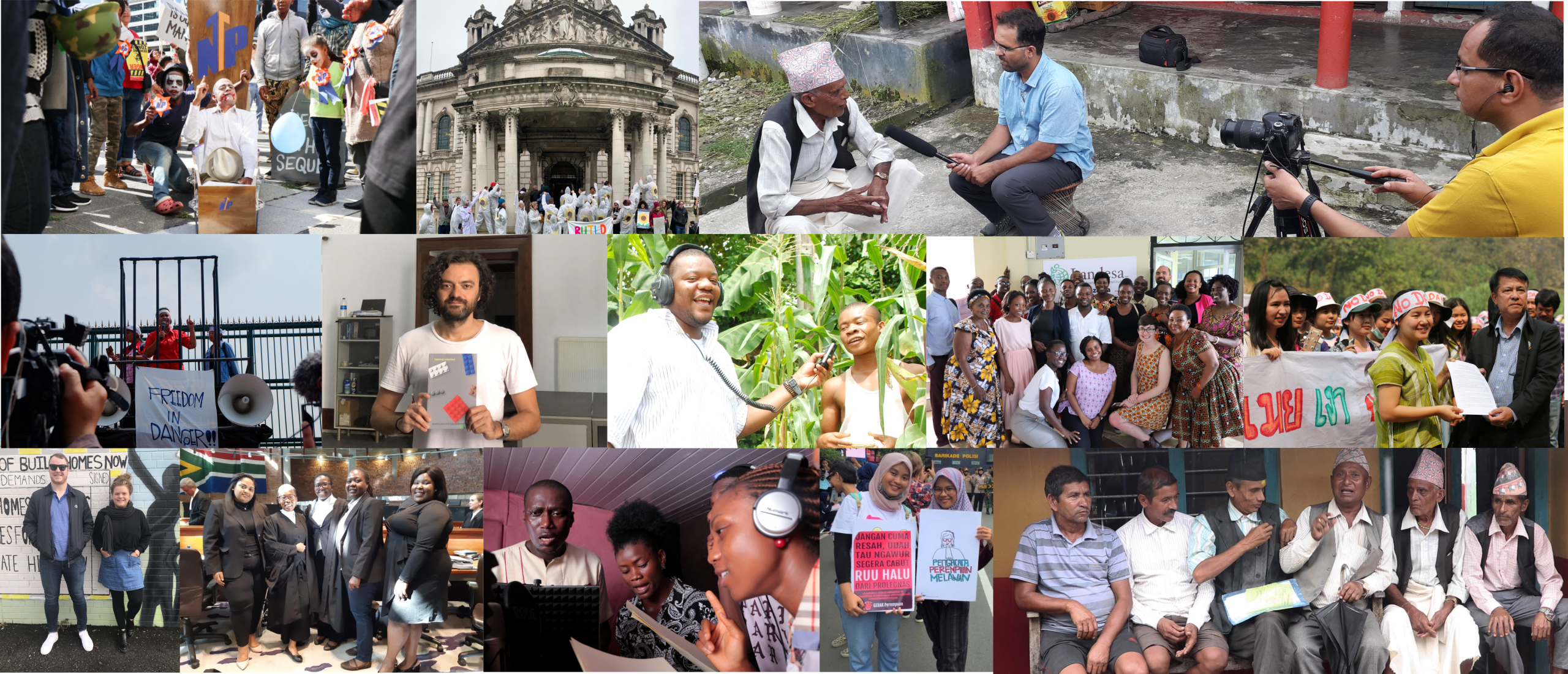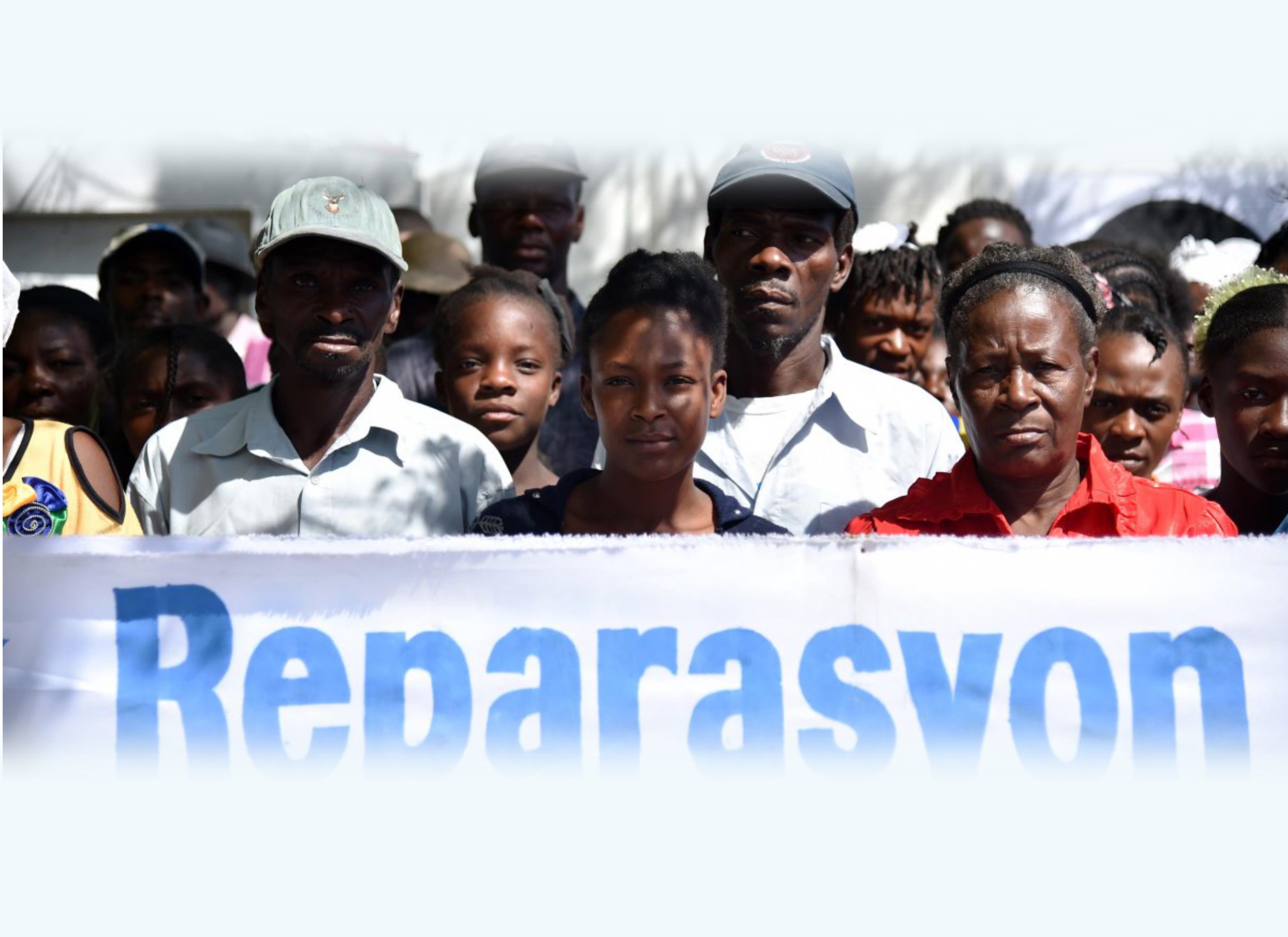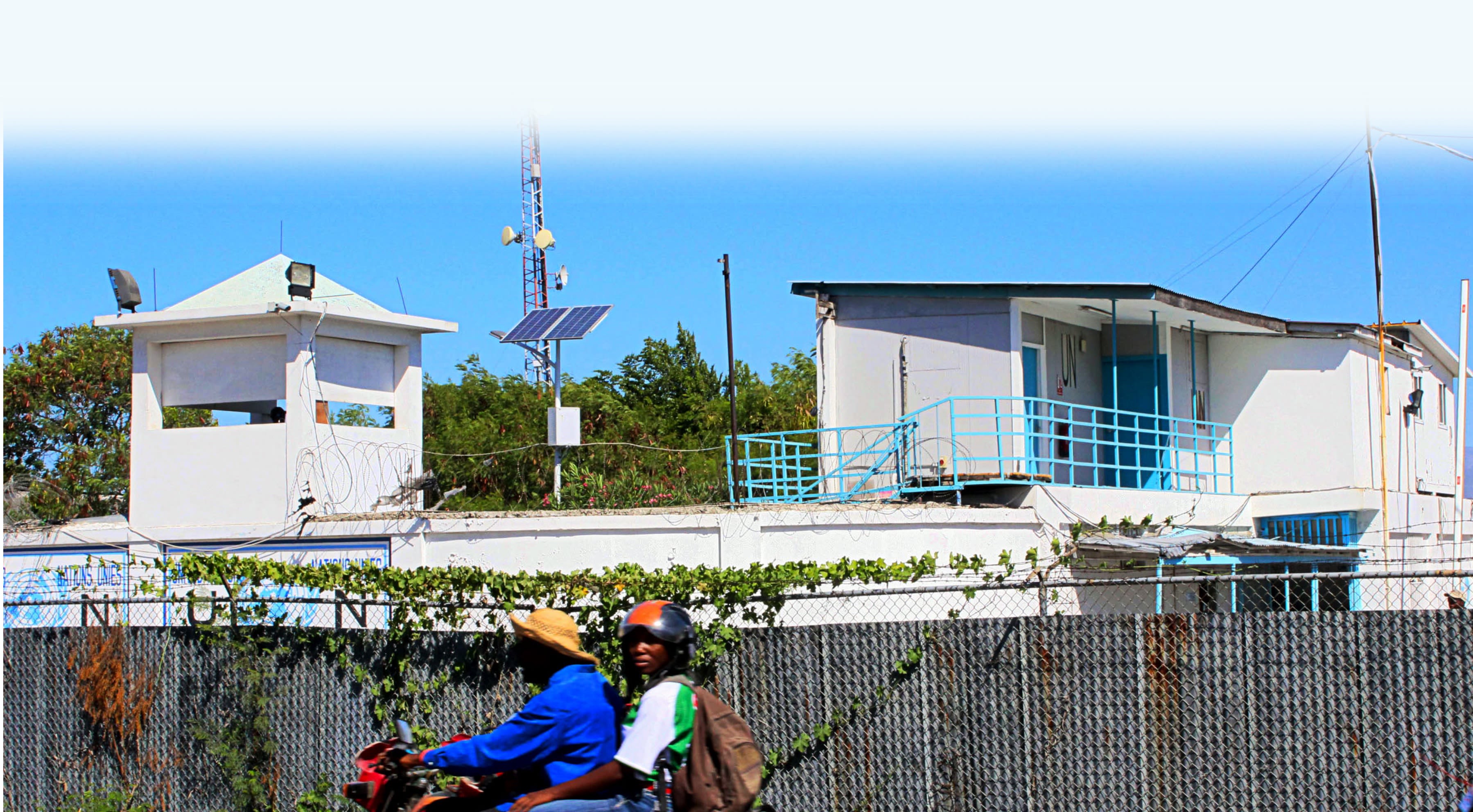Sienna Merope-Synge
Haiti, United States of America

Soon after Sienna Merope-Synge started her Bertha Justice Fellowship at IJDH, she found herself in Haiti working side by side with community lawyers to fight for UN accountability for the cholera epidemic of 2010.
In September 2015, Sienna Merope-Synge started her Bertha Justice Fellowship with the Institute for Justice and Democracy in Haiti (IJDH) and almost immediately joined the fight for UN accountability for the cholera outbreak there. As a part of her Fellowship, Sienna was in Haiti working with Bureau des Avocats Internationaux (BAI), IJDH’s sister organization and a Bertha Justice Partner. At BAI, she worked with communities, Haitian-led grassroots organizations and community lawyers seeking justice and reparations for Haitians affected by cholera.
Cholera had been introduced to Haiti in October 2010 as a result of reckless waste management by UN peacekeepers who had been deployed for the United Nations Stabilization Mission in Haiti. In early 2016 the Haitian Ministry of Public Health and Population reported that the epidemic had killed more than 9,200 people in Haiti and infected over 770,000. Despite overwhelming evidence, the UN would not formally acknowledge their responsibility for the epidemic, denying victims access to justice and reparations.
IJDH, BAI and grassroots organizations across the country launched a multipronged strategy seeking to create a space where no discussion about Haiti could occur without placing the issue of UN accountability at the forefront. Sienna says, “That was a strategy we used very successfully in the cholera case, almost a battle of attrition with the UN, where we were just that fly buzzing in their ear every single place they went.”

During her Fellowship, Sienna’s work on the multipronged strategy came in many forms, from attending marches and protests to supporting exhibitions to working alongside BAI and those affected by the outbreak to write more than 5,000 letters delivered to the UN’s New York and Haiti offices on Human Rights Day in 2015. This work also fed into the preparation, drafting and submission of a Universal Periodic Review (UPR), submitted in November 2016 to the Office of the United Nations High Commissioner for Human Rights (OHCHR). The UPR was an opportunity to engage international human rights mechanisms and to take the voices of grassroots groups to Geneva.
On December 1, 2016, soon after the OHCHR meeting, a moment of victory came: Ban Ki- moon – then UN Secretary-General – issued a public apology to the people of Haiti, and the UN made a commitment towards fighting the cholera epidemic and helping communities. This win was a major step in the journey toward breaking UN impunity in Haiti and was quickly followed by IJDH, BAI and grassroots organizations strategizing to hold the UN to their commitments. They brought together UN officials and experts to develop principles for reparation. Meanwhile, Sienna also worked with BAI community lawyers to provide training to those affected by cholera to identify appropriate and sufficient reparation measures and a strategy towards achieving them.
Reflecting on her Fellowship at IJDH, Sienna shares:
“My time with IJDH profoundly shaped my view on lawyering and campaigning and also my skills in the field... Working with communities and local advocates – particularly in Haiti because there is a very healthy skepticism of outsiders from the global North and a strong radar for neo- colonial behavior – has really equipped me for how I think about those engagements, how power shows up in them, how to create spaces for people to really be honest with me.”
Much has been achieved by communities across Haiti, but the work still continues. Despite the commitments made by the UN to Haiti, moving forward on justice and reparations has been a slow process, and conflicting global priorities have only further delayed progress. For many groups around the world, pursuing UN accountability has been notoriously difficult, as the UN has legal immunity. However, the UN’s apology and commitment to the people of Haiti is not only a win for Haitians affected by cholera but also for those who may experience UN peacekeeping missions in the future. It led to a shift in practice, and the apology illustrates a movement towards further UN accountability.

CREDITS
Photo 1: Community March for Cholera Justice. Image: BAI
Photo 2: UN in Meye, Haiti. Image: BAI
Authors: Shveta Shah, Program Director, Bertha Justice Initiative and Sammy Richards, Communications Coordinator
Editorial Consultant: Karen Frances Eng
This story was originally published in the Bertha Fellows book and some of the information in this story may have changed since it was first published.


 Built with Shorthand
Built with Shorthand